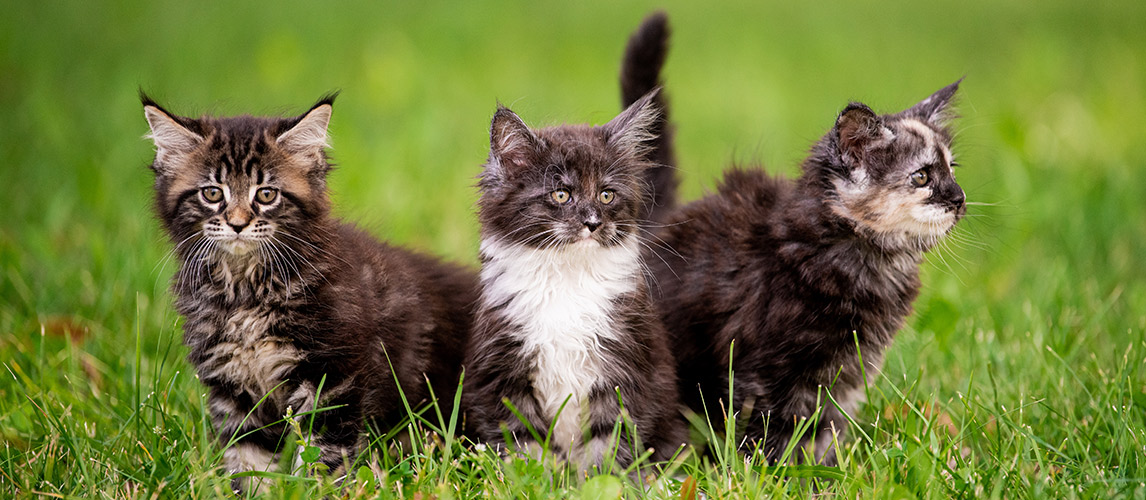Cats are born adventurers, and most love to be outside. But with the dangers of modern life, pet parents are increasingly choosing to keep their kitties inside. It is thought that around 70% of cats in the US are now indoor pets or have very limited time outside.
However, it is possible for your outdoor cat to live his best life, whether he is permanently outside or is a house cat at heart. We look at the pros and cons of caring for an outdoor cat and how you can keep them safe, healthy, and happy.
The Outdoor Cat

Many cat owners in the US are opting to keep their kit inside or limit their outdoor time. And in most cases, their pet’s health and safety are the drivers behind this decision. While it is perfectly acceptable for a kit to live its life as an indoor cat, for some felines, it’s simply not the right choice.
However, the US also has an estimated 50 million feral cats in the US that live permanently outside. And then there are the millions of domestic cats that have a home but also enjoy the outdoor lifestyle.
If you own an outdoor cat or want to be able to let your kit outside, it’s important to know how to care for them and meet their needs. Here are the main pros and cons of owning an outdoor-loving cat.
Pros
- Supports their instincts – cats are born predators and are hardwired to hunt and explore. Their instinct is to be outside, roaming and exploring, to see what they can find. They are also territorial and like to map out their home turf. Providing your kit the opportunity to be outside and indulge in being a cat means they also get plenty of fresh air and space. And all that stalking, chasing, hiding, and pouncing give their mind and brain a good workout.
- More opportunity for exercise – outdoor cats are on the move more than their indoor counterparts and have plenty of opportunity for exercise and quality cat-focused playtime. Running, jumping, climbing, stalking – these are all good ways your cat can exercise their whole body and help to keep obesity at bay.
- Prevents boredom – indoor cats are prone to boredom, despite your best efforts with toys, grooming, and one-to-one time. And a bored cat can succumb to undesirable behaviors such as scratching your furniture. However, an outdoor cat has plenty to do, and you don’t have to work so hard to provide them with stimulation as they find their own!
Cons
- Risk of injury – outdoor cats, especially feral cats or cats that live outdoors all the time, are at a greater risk of getting hurt than indoor kitties. In fact, according to the Animal Humane Society, outdoor cats have a lower life expectancy, potentially up to 10 years lower than a full-time indoor cat. There are numerous hazards for an outdoor cat, from traffic, predators, and other cats to dangerous environments and poisonous substances. This raises their risk of injury and even death.
- Increased chance of getting lost – cats love to wander, and while they usually mark their territory so can find their way home, they can roam too far. And this increases their chance of getting lost, especially during the snow and very cold weather of winter when they can become disorientated. Cats are also curious and can find themselves trapped inside outhouses, sheds, and abandoned buildings as they explore.
- More susceptible to sickness – the outdoor cat also has a greater chance of picking up an infectious disease than a cat kept safe and secure at home. During their wandering, your outside cat is more likely to encounter a host of diseases, some of which can be fatal. The main ones to be concerned about are feline AIDS, leukemia, feline distemper, and toxoplasma gondii. Fleas, ticks, lice, and mosquitos can cause infestation and illness.
Top Tips to Keeping Your Outdoor Cat Safe and Healthy

If you would like your kit to enjoy the outdoor life, care for or know feral and stray cats, or even community cats, you can take some key steps to keep them as safe as possible. Here are our top tips on how to raise an outdoor cat and keep them happy, healthy, and living their best life.
Get them Microchipped
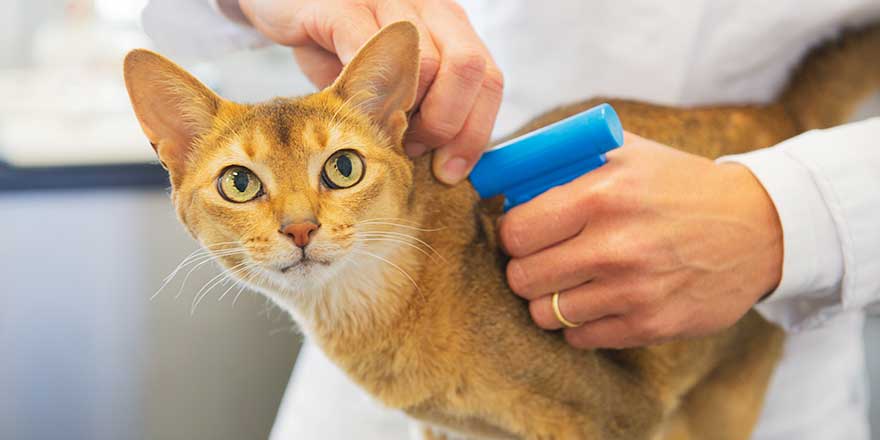
Before you even let your kitten or new cat out of the door, it is crucial that you take them to the veterinarian to be microchipped. If your cat gets lost and is found by someone, or worse still, has been injured or killed, getting your pet chipped is one of the best tips for taking care of outdoor cats. It is also recommended by the American Humane Society.
A microchip will hold your contact details, so always ensure they are up to date, so your feline friend is returned to you. A well-fitting safety collar with your ID and contact details is an additional good idea – just make sure the collar has a quick release system in case it gets caught, and your pet is trapped.
You could also consider fitting a GPS tracker to your cat’s collar for extra security.
Make Sure They are Vaccinated
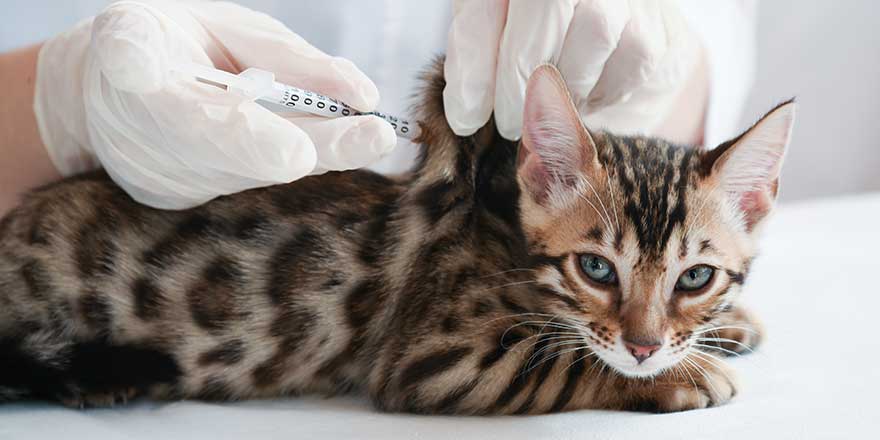
As outdoor cats are more at risk of exposure to viruses and diseases, it is essential your cat has had all their essential shots before being allowed outside. A trip to your local veterinarians will ensure you get the right vaccinations for your feline friends. You should always keep up to date with your cat’s worm and flea treatment program.
Spay or Neuter Them

An outdoor cat will be a cat, which means meeting felines of the opposite sex. To help keep the number of unwanted feral and stray cats down naturally, it’s vital that you have your outdoor cat sterilized, whether neutering or spaying. Neutering or spaying is responsible for protecting your cat from disease and injury from other ‘in-season’ felines.
A Trap Neuter Return policy is also supported by the Humane Society and the ASPCA for feral and stray cats.
‘Train’ Them to Come Home

The safest way to own an outdoor cat is to train them to know where their home is and encourage them to return each day. Gradually introducing them to the outside when you first let them outdoors, using treats, and bonding with your cat, giving them a warm shelter inside and plenty of tasty food and water means they are more likely to come home after a busy day outside.
Access to Food and Water

Your outdoor cat will likely need more calories than an indoor cat to sustain their on-the-go lifestyle. So, it’s important to ensure they have access to fresh, outdoor cat-appropriate food and plenty of water.
And during the winter, when the temperatures drop, you may need to increase the calories your outdoor cat eats daily.
Provide Shelter
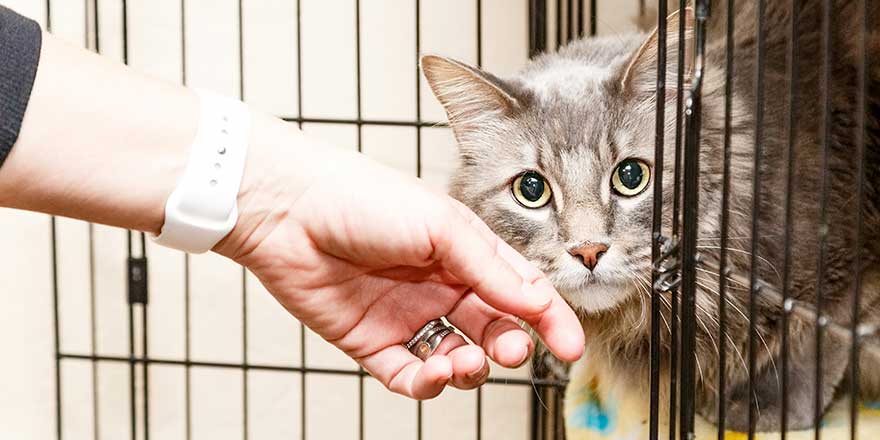
Your outdoor cat will also need access to a safe, warm shelter for them to hunker down when it is time to come inside. This could be inside your home, via a cat flap, or in an outside building. Or you could build your outdoor cat shelter, especially if caring for any feral and stray cats in your neighborhood.
An outdoor shelter needs to protect the cat from bad weather conditions, so needs to be secure and waterproof and have blankets and access to water bowls and some dry or canned food.
Create a Safe Environment
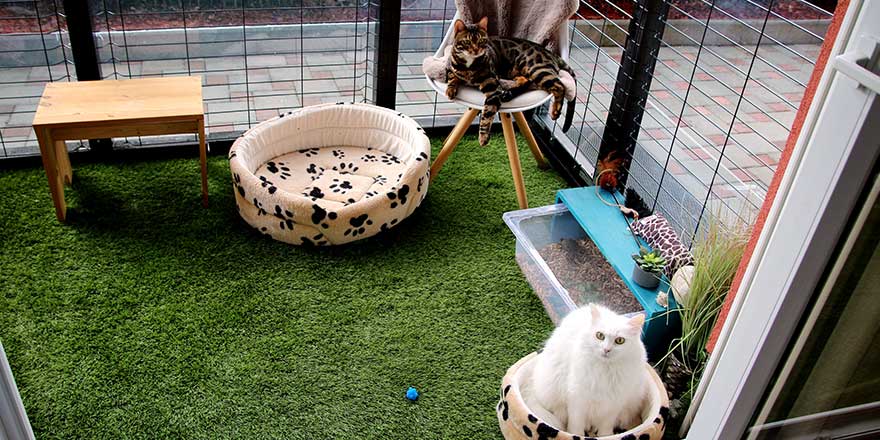
And finally, when it comes to effective outdoor cat care, consider the outdoor environment your cat will most likely be roaming in, including your garden or yard. There are environmental hazards that can cause harm to an outdoor cat, so an assessment is essential.
You’ll also need an outdoor cat enclosure – check out our top picks here!
For example, do you have plants in your gardens, such as tulips or oleander, which can be poisonous for felines, or are there any obstacles that can cause injury? Pesticides, trash, building materials, and antifreeze can harm your pet. Proximity to main roads, highways, or large dogs may make you think twice about letting your precious cat out.
The bottom Line
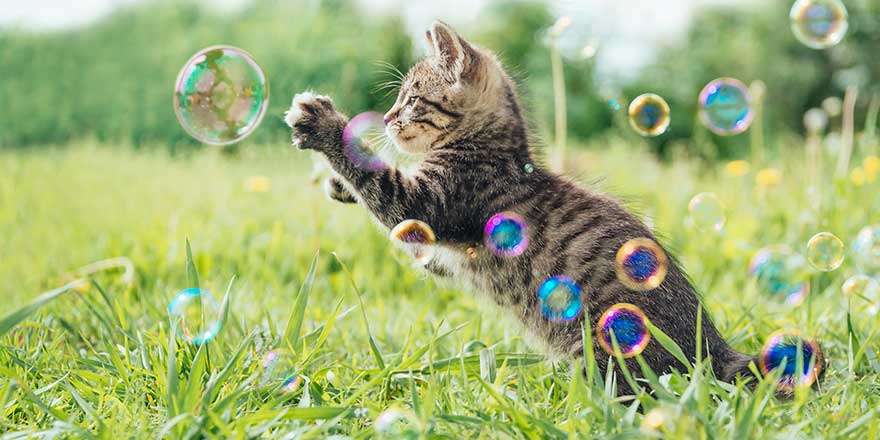
There is no real right or wrong about owning an outdoor cat, but as we have highlighted, many pet owners choose to keep their kitties indoors due to concerns for their health and safety. While a domestic cat can thrive as an outdoor cat, there are some key steps you need to take to keep your pet happy and safe if this is the route you choose to take.
From microchipping and vaccinations to ensuring they have a warm place to shelter at night and access to plenty of food and water, you are doing all you can to give your outdoor-loving cat the best life.
And if he is a home cat at heart, you know he is happy where he belongs when he comes back at night.
Source:
- Helping stray and feral cats – WebMD
- How to care for outdoor cats in winter Humane Society
Frequently Asked Questions
Many cats are outdoor cats but come into the home for warmth, sleep, refreshment, and human connection. Other cats, due to preference or circumstance, live permanently outside. While it is not necessarily cruel to keep a cat outside, they do need access to shelter, food, and water. And, as we have seen, life for an outdoor cat can be more hazardous so you do need to take steps to minimize the risks.
Cats are generally robust creatures that are adept at living outside, so it is possible for felines to live outdoors all year round. Stray or feral cats have been able to adapt to their surroundings but will still need access to food (hunted or supplied) as well as shelter when the weather turns cold.
Feral and stray cats help themselves to stay warm during the winter by reducing their activity levels to conserve energy. They also seek out shelter, such as outhouses, or abandoned buildings.



